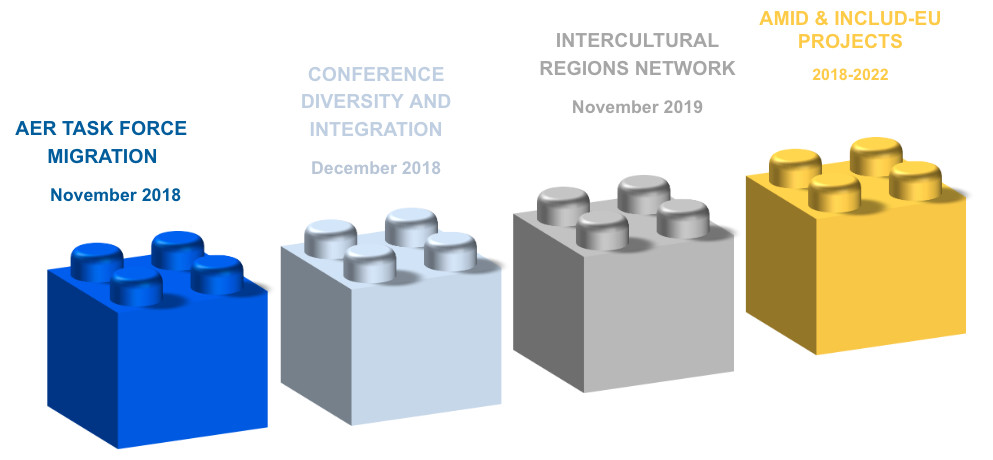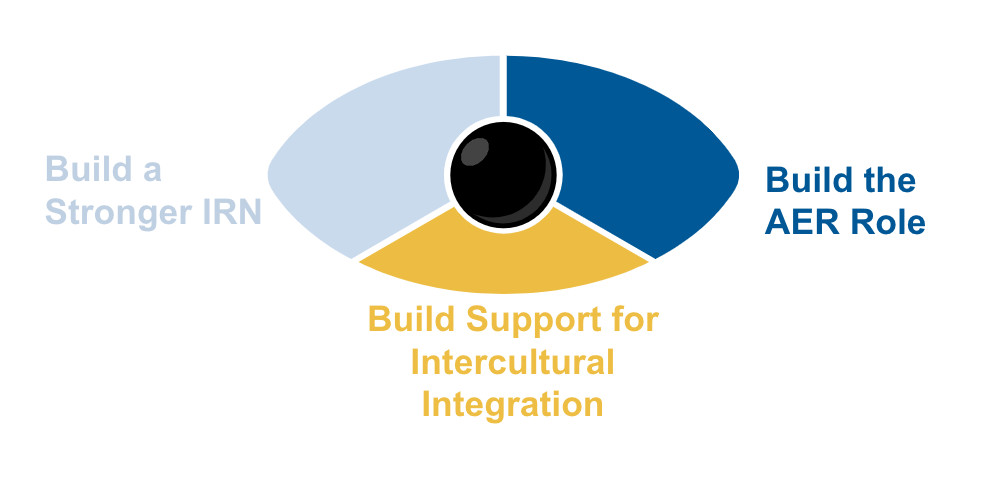Get Familiar
Objectives and Timeline
Objectives
Improve migrants’ socio-economic inclusion and sense of belonging through a strong intercultural approach based on equality, diversity as advantage, and positive interaction.
How we do it
Through adaptation and implementation at the regional level of the research, methodologies, tools and practices that have made the success of the Intercultural Cities Programme.
Increase the competences of public and private stakeholders to effectively address the integration challenges.
Through Capacity building & mutual learning
Define a regional multi-level and multi-stakeholder framework for intercultural inclusion strategies.
Through the Elaboration of a general model framework for regional integration strategies
Design and test a replicable methodology for the development and implementation of regional intercultural strategies.
Through Multi-stakeholder co-design of 10 regional strategies, pilot testing & Modelisation, dissemination and mainstreaming activities
Boost the exchange of experiences and transnational cooperation among European regions and EU stakeholders.
Through the creation of Knowledge Transfer Clusters
Project Timeline
- Assessment of intercultural comptency’ needs in the regions, development of capacity-building programmes, and preparation of training content
- Running of online capacity building training and in-person 3-days multi-stakeholder learning labs on interculturalism for regions and local stakeholders
- Development of the Intercultural Integration Self-assessment Questionnaire for regional authorities
- Assessment of policy integration framework by the regions
- Elaboration of the Model Framework for Regional Multi-stakeholders Intercultural Integration Strategies
- Publication of the Handbook for Regional Online Capacity Building Programmes on Interculturalism and regions’ Reports on the Multi-stakeholders Learning Labs
- Multi-stakeholder co-development process for the elaboration of regions’ 3-years multi-stakeholders intercultural integration strategies
- First in-person Transnational Knowledge Sharing Event
- Testing of the strategies throught the implementation of one pilot in each region
- Process’ evaluation and elaboration of a comprehensive report and integration of the initial Model Framework for Regional Multi-stakeholders Intercultural Integration Strategies
- Dissemination of results across levels of governments and policy sectors
- Second in-person Transnational Knowledge Sharing Event (project’s final event)
Project Background

The EU-Belong Project is the result of the groundwork laid by the Intercultural Regions Network (IRN) at the AER. Launched in November 2019, the IRN comprised of 11 members including Catalonia, Valencia, Murcia, Navarra, Basque Country, Värmland, Västra Götaland, Västerbotten, Emilia Romagna, Innlandet, and Arad. The primary aim of the IRN was to create a platform where members could share knowledge, resources, and experiences to promote intercultural integration.
Inspired by the Intercultural Cities Programme of the Council of Europe, the IRN paved the way for the EU-Belong Project, which continues to build on the work done by the network and on the vision to build support for Intercultural Integration at the Regional level and strengthen the voice of the AER Network in this innovative area in policy and in practice.
